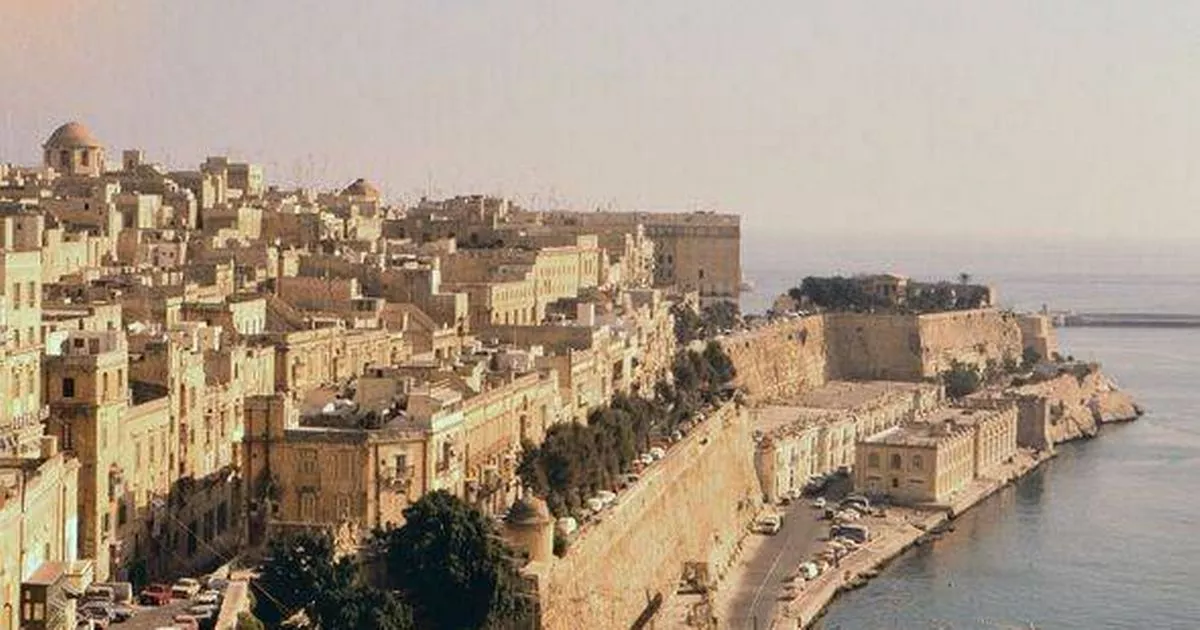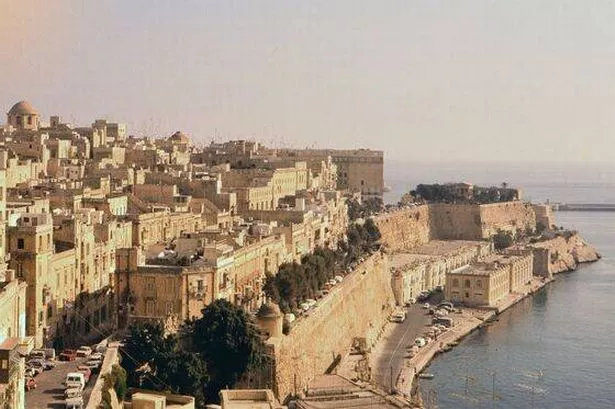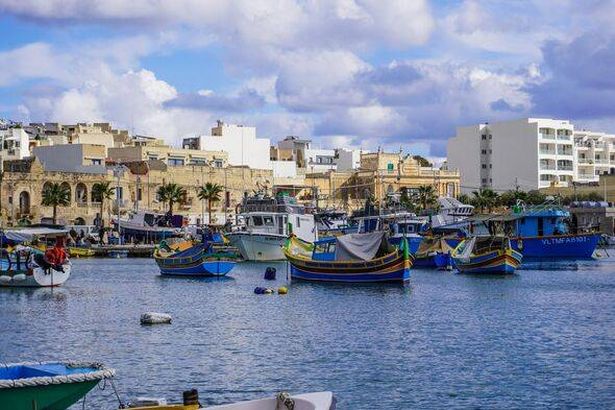As the UK grapples with economic uncertainty, an increasing number of financially stable Brits are contemplating a move abroad, with Malta emerging as a particularly attractive destination.
“We see more people moving from Britain than anywhere else,” estate agent Grahame Salt disclosed. “They like the Mediterranean lifestyle, the low crime rate, the fact that English is spoken here and, above all, the low taxes.”
Malta, once considered a tranquil haven, has seen substantial evolution in recent times. Journalist Marianne Jones, who grew up on the island, visited again and was amazed by its progress.
“The island bears no resemblance to the slightly sleepy rock of my youth, where I remember watching old ladies embroidering lace on their doorsteps while donkeys and carts passed by,” she remarked.
READ MORE: Escape To The Country guests reveal surprise connection to host led to BBC appearanceREAD MORE: British Overseas Territories: how you can visit or even live in one of these tax-free havens
“Malta today is a young, vibrant and crowded place but still historically astonishing. When I last visited Valletta almost every bar was packed out and there was live music in the streets.”, reports the Express.
“Yet the Michelin star tasting menus and nightlife are seamlessly woven into the fabric of life here, alongside ruins older than the pyramids, church bells ringing and masterpieces,” she reflected.
Financial advantages
For those attracted by tax benefits, Malta’s approachable tax system is a significant allure. Estate agents can help navigate the seemingly complex structure, and after five years of residency, individuals are eligible to apply for a Long-Term Residence Permit, allowing full access to work, education, and public services.
Applicants are required to demonstrate a stable income, health insurance and secure accommodation. In addition, UK nationals can also apply for a Malta Permanent Residency Permit, which requires assets of at least €500,000 (£429,000), including €150,000 (£129,000) in investments, or a total of €650,000 (£558,000) with at least €75,000 (£64,000) invested.
Long-term residents are subject to progressive tax rates of up to 35 per cent, which is 10 per cent lower than the UK’s highest rate. There are no wealth, inheritance or annual property taxes, although a 5 per cent stamp duty is charged on property purchases, and capital gains tax may be applicable on sales.
Retirees can benefit from the Malta Retirement Programme. To qualify, one must own or rent a property, with prices starting from €275,000 (£236,721), or €220,000 (£189,145) in the south.
The minimum annual rents are set at €9,600 (£8,254) or €8,750 (£7,522) respectively. Retirees are required to reside for 90 days annually, with 75 per cent of their income coming from a pension.
Foreign income is taxed at a flat rate of 15 per cent, while local earnings are taxed at 35 per cent.
Business Boost and Career Opportunities
With English being an official language, setting up a business in Malta is relatively straightforward. Company registration takes just 1-2 weeks and share capital requirements are modest at €1,165 (£977), of which only 20 per cent is needed upfront.
Corporate tax rates range from just 5 to 7 per cent.
British expats boasting skills in IT, software, data analysis or finance will find a wealth of opportunities. Malta has emerged as a hotspot for tech and financial firms, with English teachers also in high demand due to the island’s popularity among language students.
Top-notch Education Choices
Malta’s education system is held in high esteem, offering the choice of UK or US curricula. Top schools include Verdala International, St. Edward’s College, QSI International and St Martin’s College, with yearly fees ranging from €3,700 (£3,105) to €10,800 (£9,285).
Many schools have waiting lists, so it’s crucial to apply early.
A Rich Blend of History and Culture
Malta’s intricate history – spanning from Phoenician to British rule – has left a rich cultural legacy. From Valletta’s grand palaces to Mdina’s fortifications and ancient alleys, there’s a timeless feel to the place.
With 350 churches on the island, visitors are spoilt for choice, including St John’s Co-Cathedral, home to two Caravaggio masterpieces.
Despite its deep-rooted history, British influences remain strong – from driving on the left to familiar high street brands like Marks & Spencer and Zara.
Affordable Island Living
Living costs are lower than in the UK, with an average family of four spending around £2,571 per month compared to £3,907. Rents are 22 per cent cheaper and city centre flats are almost 40 per cent less costly than in London.
Properties with Character
Malta’s property market has experienced a remarkable surge, with prices rocketing by 125 per cent in the last ten years. Although first impressions upon landing at the airport might be underwhelming, Malta offers an enchanting mix of baroque splendour and contemporary opulence.
With half of the island’s 297,000 dwellings being apartments, there’s no shortage of choice for prospective buyers. From the modern luxury of Tigne Point, boasting views of Valletta and an infinity pool, to the grandeur of 16th-century palazzos nestled in the inland villages of Gharghur, Naxxar, and Lija.
“The thing that most Brits like is that everybody integrates so happily,” Salt comments. “In many countries, such as Spain, you find incomers forming together in their own communities, making little attempt to mix. That doesn’t happen here.”
It’s this unique combination of tradition, opportunity, and community spirit that makes Malta an irresistible destination for those looking to settle down.
As Marianne Jones puts it: “I still love Malta more than anywhere in the world.”

 Aerial view of Valletta Malta and its grand harbour(Image: Getty)
Aerial view of Valletta Malta and its grand harbour(Image: Getty) For many, it’s this blend of tradition, opportunity and community that makes Malta so compelling(Image: Getty)
For many, it’s this blend of tradition, opportunity and community that makes Malta so compelling(Image: Getty) As economic uncertainty grips the UK, increasing numbers of financially secure Britons are eyeing a(Image: Getty)
As economic uncertainty grips the UK, increasing numbers of financially secure Britons are eyeing a(Image: Getty)